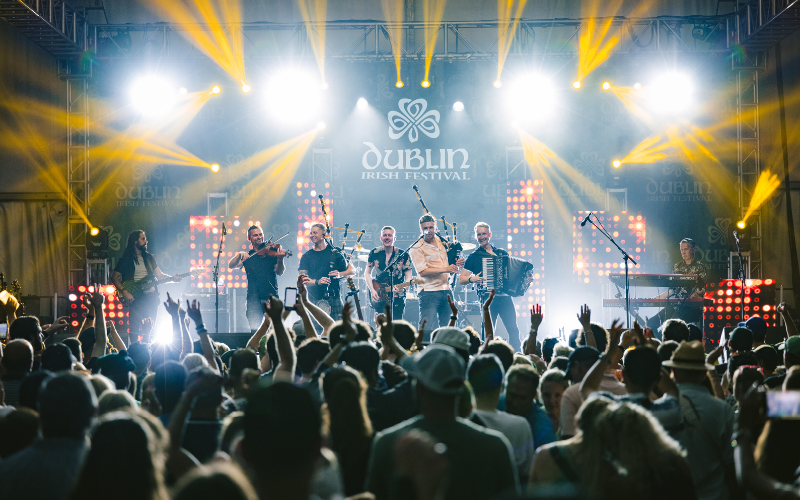Writer, actor, broadcaster and raconteur Malachy McCourt left a post on Facebook last week announcing he's receiving hospice care.
Despite the grim subject, it was a typically funny and thoughtful announcement.
“Have I told you about my dying ?” he asked sweetly.
It was a remark brimming with all the disarming wit we have come to expect from him because even in matters of life and death, his personal style never deserts him.
That style has been hard won. Barely making it out of his Limerick childhood alive taught him unforgettable lessons about the shortcomings of the Irish church and state, and these lessons McCourt, 90, brought with him to America in 1952.
Working first as a longshoreman, then dish washer, then laborer, he made a classic immigrant's journey toward acting and bar owning (of that legendary bohemian hangout The Bells of Hell in Greenwich Village).
Best known now for his writing and for distinguished performances in film and television, his full career – which includes many decades of broadcasting - has been remarkable.
“I'm in a program called hospice now,” he tells IrishCentral. “It goes like this, they have to keep you for six months. If you die, you go off the program. If you don't die, you go off the program. It's a really awkward sort of situation. The worst thing to do is sit around twiddling your thumbs, apparently.”
McCourt revealed he has cancer and heart disease, but it's a different disease that's still afflicting America that is really on his mind this week.
“I'm thinking about the Trump disease,” he confesses.
“This one is noted for its malignancy and bewilderment and for driving everyone cuckoo. And it's a very strange thing for the country to go through because there's never been anything like it. Although I'm an atheist, I would still describe it as evil. It's an evil that's afflicted the country.”
The Trump disease, according to McCourt, is a fairly subtle one. “There's an underlying tendency in a lot of people here towards fascism. They have stopped looking at political opponents as people and started looking at them as enemies. They're not at all worried about murder or injury or anything like that anymore. So that's the evil part of it.”
What about the Irish here who should know better? We've seen anting bullies before like Ian Paisley and we know where that leads, so why are so many of us being taken in by Trump?
“Well, I think it was Yeats who said you eventually become the thing you hate the most. I think that there is that tendency in the Irish, a sense of inferiority and social climbing and we seem to think that we're always at the bottom. We have this business of, 'Oh well I climbed to the top and now I see things differently.' It's never left us and when you look at the amount of Irish around Trump it's very sad.”
Are you referring to the O'Reillys, Hannitys, and Bannons?
“Yes, all of these Irish names gathering at the feet of this fascist. Wouldn't it turn your stomach to think about it? They're in search of some proof that they're not inferior. And we get that from the British and the number that colonialism did on us. Think of the amount of Irish that served nobly in the British Army. And then think about how they would still look down on us.”
When I tell him I'm an atheist he says immediately, “Thank God!” Like every other atheist, I have mixed feelings about life and death, I tell him, but when you're looking at the barrel, what thoughts go through your head, I ask.
“Oh, I don't know. I'm 90 now, I'll be 91 in September and I've had an amazing life. And that's enough for me. I don't have the energy for happiness. It sounds very wearing to me now,” he says with a laugh.
Even heaven sounds like a bust he says. “The righteous sitting there to God's right hand, watching the hairs grow in his ear. And on His left-hand side, there's me and Karl Marx. But no, I don't have any belief in that, and Cahir, I have no fear of it, do you know what I mean? I don't fear death. I've got heart disease. I got cancer. I've got all kinds of things wrong with me. But I'm not hastening it, either. I have a loving, beloved wife Diana, I have kids and grandkids. And I'm really having a very, extremely peaceful life, reading and writing and that sort of thing. So that's funny. It's rather nice.”
You grew up in rough circumstances, I say, what did that teach you about Ireland?
“Well, we heard a lot about Christian charity but it didn't exist for us in Ireland. In Limerick, they believed you were in poverty because you did something wrong and you deserved it. We lived in a variety of slums and they booted us out of our various digs. Two of my siblings died in childhood, and eleven of my classmates died. There was some reason why that happened, I'm sure, but it was never attributed to anything. Instead, people told us it was God's will. That's what they said. God took him. And he's now in heaven.”
But the boys they were talking about weren't in heaven, they weren't anywhere but decomposing, McCourt says.
“My grandmother was a very tough woman and she didn't like us because my father was from the north. She had a suspicion he might be a Protestant. So when my brothers died in childhood, they had a family plot, but she wouldn't let my mother bury them there. Instead, they were buried in an overgrown, abandoned graveyard. And there was your Christian charity.”
The work that you and your brother Frank have done has immortalized you both; it will be read and enjoyed for centuries, I say.
“It's very peculiar, it amuses me that Frank and myself will be remembered like that because we left school at 13. We went straight to work, so there was no formal education. But that was the amazing gift of a Presbyterian Scot named Andrew Carnegie. He gave us the library in Limerick. And that opened up a world to us. That was a real heaven. We didn't read books. We devoured them. So that was our education.”
He continued: “But Frank went back and got degrees because he was somewhat of a genius. I was dopey, I couldn't. I couldn't comprehend anything, not a bloody thing. Grammar escapes me but I enjoy words. That's it.”
Now you're going about your days with your eyes open, and that's all as promised to any of us, am I right, I ask.
“You're right, and it's the healthiest way I can think of looking at it. To live without fear. I enjoy fairy tales, but I do not believe them, and heaven is a fairy tale. But that's all hell is too, hell is just a pain in the arse.”
Since I've come to New York I've noticed Irish Americans love to give each other awards, I tell him. They're hoors for it. You'd nearly get an award for waking up. What do you think all that is about, I ask?
“Well, the other f—kers won't give us any, so we take them,” he says, making me erupt. “And we have to do it,” he says. “That's the only way we can do it. You have to accept them with grave honor. And with eloquence, if you can manage it. It gives me great pleasure. Yes.”
Is there anything you want people to know at this stage of your long, remarkable life? You've brought so much joy so what, if anything, do you want to say to people now if you are asked?
“I would say that you will enrich your life by reading. That's it. You'll get everything that you need in the books, so go for it. I have read everything from the Bible to Das Kapital.
"But don't be looking for Jesus to come to America because he's a convicted criminal and you can't come in here with a record like that. I know he certainly wouldn't be allowed into the White House because if Jesus, Mary, and Joseph rode up to the Trump White House they would be told they already have a donkey in residence.”




Comments